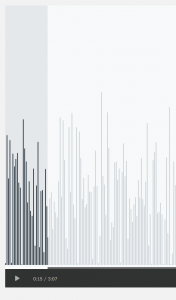Podcast Production in an Undergraduate Classroom
Di Yoong, Critical Social Personality Psychology
NML Award: The Dewey Digital Teaching Award (June 2021)

This project is conceived of as an attempt to reconsider what teaching and learning in an online remote learning environment is like during the pandemic. In teaching the Histories and Systems of Psychology at the College of Staten Island, conventional methods of papers, tests, and exams do not usually engage the students to care about the subject matter nor to consider the importance of understanding the socio-historical-political contexts to their learning of psychology. This is especially so during this period of remote learning. While the incorporation of podcasts in the classroom isn’t new, it has often stopped at just being used as text replacement for course material. We don’t always think about having students produce podcast episodes. As Harris (2019) suggests, podcast production allows students to learn how to engage with materials in ways that are more genuine to their everyday language, learn to translate knowledge often locked in the ‘ivory towers,’ and actively engage them as knowledge producers. Rather than writing just for the instructor of the class or taking tests and exams, students are now engaging with the materials more meaningfully and purposefully.
One important aspect of implementing podcast production in the classroom is to minimize technology barriers. In this case, I have assigned it as a group project to help spread the workload of producing an episode – for example, someone who would like to try podcast production may take on the challenge of being an editor, and someone else might choose to take on script-writing or take on the role of the narrator. To ensure that students are supported, I also curated a list of resources on how to produce a podcast and several podcast examples for asynchronous learning. I have also dedicated class time throughout the semester to check-in with groups 1:1. Part of designing this is to also ensure that the project is broken down and scaffold across the semester to ensure that most students (if not all) do not feel overwhelmed by the expectations of the project.
In the development of this project, students will share their podcast projects with their peers through a final listening party at the end of the semester. Throughout the semester, not only will they learn some of the technical aspects of podcast production, they will also be picking up skills in translating and producing knowledge to wider publics. Through this project, it reinforces for students the relationship between context (e.g. time and space in which their theorist lived in) in knowledge production (e.g. impacts the development of theory and object of study that their theorist is interested in) and helps to solidify the goals of learning about the histories and systems of Psychology.